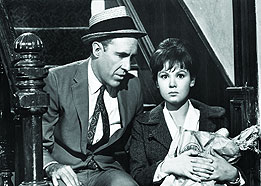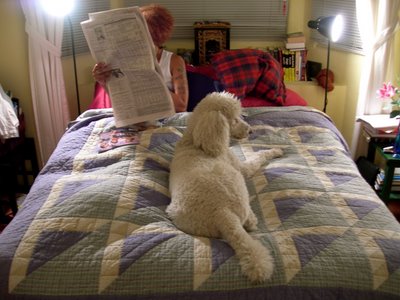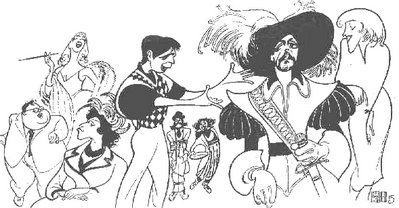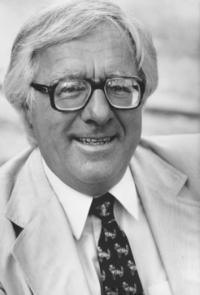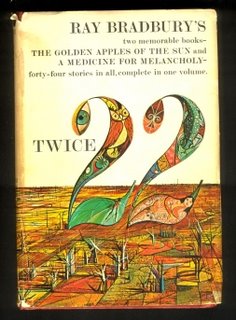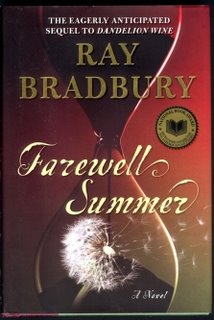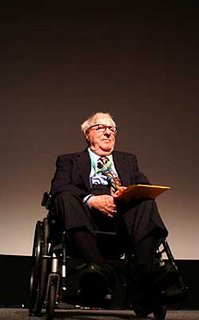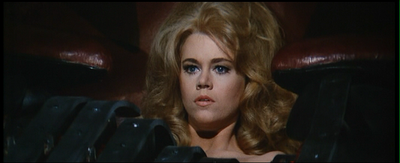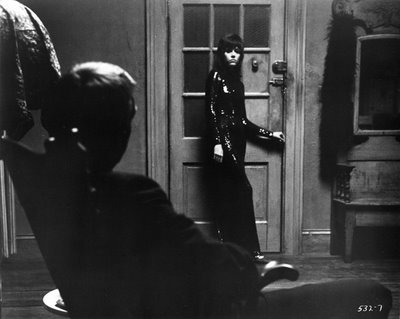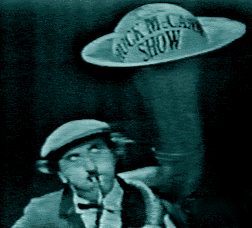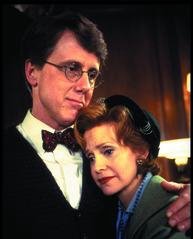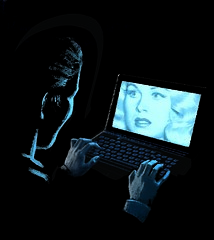
He changed his mind about what he wanted to read in bed and went back into the living room looking for a particular short story. He turned on a single light and went to the corner of the bookcase where he thought he’d find what he was looking for.
He pulled the first book he thought contained the story he wanted and opened it to the index. The one light made it safe to move about the room, but you couldn’t read by it. He pulled the open book close to his face, looking at the table of contents. This close, his glasses were no good to him so he took them off, folded them closed and rested them on the top of a book on another shelf. Then he went back to the table of contents. The story he wanted wasn’t there. He put the book back and took out the collection next to it. Not there either. A third book, the least likely one. Not there.
He held onto the third book which would have to do, turned and left the room, turning off the single lamp as he went.
He was almost to the bedroom when he realized he wasn’t wearing his glasses. He remembered leaving them on the top of the book on the bookshelf, went back to the living room and reclaimed them.
Back in the bedroom he got under the covers. Down the short hall to the bathroom his wife was engaged in what she called her “evening ablutions.” There was the sound of water in the sink.
He opened the book, but could not concentrate. He wanted to re-read that one particular story and now he had to find a substitute and his heart wasn’t into the search. Not his heart. His mind. He wasn’t focused on the book. He was focused on the idea of forgetting his glasses on top of that other book.
He was lucky he remembered the glasses on the way back to the bedroom. Otherwise he would have gone to sleep, forgetting all about them. In the morning there would have been a search and an ascendancy of frustration, anger and profanity. He would have looked in all of the normal, usual places, but the glasses wouldn’t have been there. The likelihood that he would actually remember where the glasses were was remote. He’d find them eventually, or, cursing his fading memory, pull out an older, weaker prescription that would keep him in the sighted world until he could get a new pair made.
Then, who knows, years from now, he would go looking for something in that section of the bookcase and find the misplaced glasses.
Lying in bed, the open paperback in front of him but ignored, he conjured another version of the story.
Suppose, after reading the replacement story and setting aside the book, after kissing his wife goodnight and tossing the last treats of the day to the dog curled at the foot of the bed, after turning off the light and rolling over to spoon against his wife’s soft back, suppose after falling asleep with nothing more profound on his mind than the thought of tomorrow’s bill paying and the automatic sounds of the lawn sprinklers beyond the window, suppose then, in his sleep, he died.
That sort of thing happens all the time, and to younger men. Suppose this was the night he was destined to move on to oblivion.
In the morning, the last thing his wife would think about would be his glasses. She would be busy calling the police and then calling friends and co-workers and family. The question of where his glasses were would probably never come up. They would remain in the corner of the bookcase, resting on the upper edge of a seldom examined volume documenting the Bikini atoll atomic tests in the late 1940s.
If his widow chose to remain in the house, it was unlikely that she would suddenly develop an interest in post-World War II geopolitics and go looking for this particular book.
The glasses would be found eventually during cleaning or perhaps in the inevitable packing up of the contents of the house, either when his widow moved or when she died.
He was concerned by the distress the glasses might cause his wife if she were to find them some years from now, long after he’d settled into her memory. The idea of her suddenly coming across this item, the things through which he once gazed at her, might be very upsetting. Their discovery could leave her suddenly overwhelmed by a returning grief. The healing of years could be erased in a startled instant.
He would be long beyond caring at that point, but it still troubled him. Another loose end. Part of the pedestrian mess he expected to leave behind: Credit card bills and unbalanced bank statements, where the lightbulbs were kept and how to adjust the timer on those sprinklers he heard outside the window.
He could hear the dog licking his hind leg. The animal had aged into a skin sensitivity, an allergy they had been unable to pinpoint in four months of vet visits.
The dog was getting older, offering his master an accelerated preview of what was ahead for him. The slowing, the aches and pains, the doctor bills, the diminishment. More and more he was aware of how much of his world was coming to an end, unmarked and unmourned except, it seemed, by him.
He heard the hollow rustling of coffins out in the woods when the names of actors he’d grown up watching in the movies started to appear in the obituary pages. There vivacious, ripe and rapturous women who burned into his adolescent mind became great grandmothers who “succumbed after a long illness” and the bold heroes he copied in childhood backyards were overthrown and replaced with brittle stick figures who, “after sustaining a fall,” were undone by pneumonia and blood clots.
He felt memorials multiplying all around him like dandelions.
He closed the book and after putting it on the night-table on top of the clock radio, next to the glass of orange-juice, turned off the light on his side of the bed and stretched out under the covers on his back. He closed his eyes, put his arms along his bare sides and tried to hear the sound of his own heart. At first there was nothing, then with concentration, he felt a movement in his chest; a faint, moist rhythm. He put his left hand on his jaw and felt his pulse, a thin trip-hammer tapping away against his fingertips, keeping him alive. The only thing keeping him alive.
He wished for a real clock at his bedside, not the digital box next to him. He vowed to buy a real clock the next day. Something that ticked. Something that would produce a constant external rhythm that would remind his heart to keep beating when he was asleep.
At his feet, below the foot of the bed, his dog released a lengthy sigh. He listened as the dog began to snore. Soft, weary, growls on the exhale, then the inhale, then another rumbling growl.
He fell asleep trying to match his breathing to that of his dog and did not hear his wife climb into bed with him.


















